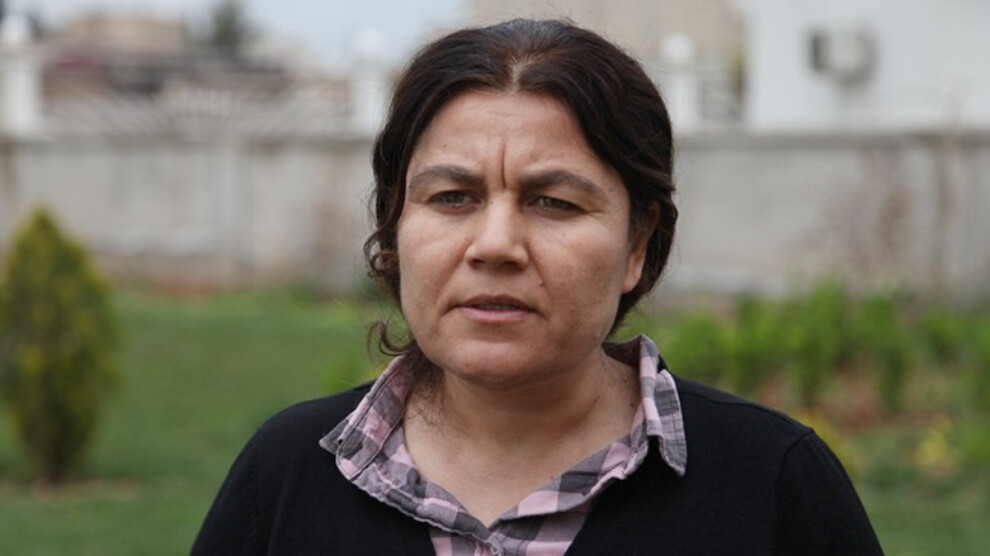Democratic Union Party (PYD) Presidency Council member Foza Yûsif spoke to ANHA about the invading Turkish state's attacks on North and East Syria and the recent meeting with Kurdish Leader Abdullah Öcalan.
Stating that the Turkish state's attacks on North and East Syria are a continuation of the policy of genocide against the Kurdish people, Foza Yûsif said, “It is a war crime to attack institutions and infrastructure and massacre women, children and civilians in North and East Syria.”
Foza Yûsif stated that the Turkish state attacked North and East Syria using the action against TUSAŞ (Turkish Aerospace Industries Incorporated Company) in Turkey as an excuse despite the fact that the Autonomous Administration of North and East Syria had nothing to do with it.
Foza Yûsif said, “The Turkish state wants to legitimise its brutal attacks on the region with lies. The action in Turkey has nothing to do with the Autonomous Administration of North and East Syria. The Turkish state is attacking North and East Syria after any action directed against Turkey. With these attacks, it wants to defeat the Autonomous Administration, occupy the region and prepare infrastructure for violent groups.”
Drawing attention to the policies of the Turkish state, Foza Yûsif said that Turkey has changed tactics against the Kurds, but its goal is always the same: “The Turkish government is experiencing duality and confusion due to its failed policy. If it does not give up its policy of denial and annihilation, it cannot make a change. Turkey relies on the military option to solve problems, which has always failed. With its latest attacks, the Turkish state shows that its tactics have changed, but its strategy and goals towards the Kurds and the region have not changed at all.”
Foza Yûsif continued: “Turkey has been fighting against the existence of the Kurdish people for a hundred years. It has done and sold everything for success, but it should know that it cannot destroy the will of the Kurdish people and the peoples. If Turkey wants to solve its problems, it must recognise the rights of the Kurdish people and the rights of the peoples of the region. What it has done has only caused people to grow away from and hate it. Therefore, it is not possible for it to succeed in these policies. The Turkish state has been defeated both inside and outside. In the face of this defeat, we must strengthen the unity of our ranks no matter what. Let us protect our land and honour together. An attack on a region is an attack on our future.”
Referring to the silence of the International Coalition and Russia, Foza Yûsif stated that this silence is the main reason for the attacks. “Opening the airspace to the Turkish state means approving and allowing these forces. We call on them to put an end to these two-faced and unjust policies.”
Regarding Turkey's recent statements about Leader Abdullah Öcalan and the Kurdish question, Foza Yûsif said: ‘Whatever the intentions of these statements, they show that Turkey recognises that its military strategy has collapsed and that the isolation policy against Leader Abdullah Öcalan has failed. Leader Abdullah Öcalan is the first interlocutor for peace, and he holds the key to the solution. The Kurdish question has become a regional and international issue. The Kurds have become a strategic power. No politics can succeed without the Kurds.
Turkey now faces two paths: either change its strategy towards the Kurds or fall into the situation of many other states in the region. Tayyip Erdoğan, as head of the Greater Middle East Project, could become the target of this project. A peaceful solution to the Kurdish question would be a new dawn for Turkey.”
Speaking about MP Ömer Öcalan's meeting with his uncle Abdullah Öcalan on 24 October after 44 months of incommunicado and the message he sent, Foza Yûsif said: “Leader Abdullah Öcalan affects not only Kurds, but the region and the whole world. Therefore, receiving information from him is very important for the people of the region. The content of the message is clear; despite all the policies of isolation, Leader Abdullah Öcalan still has the last word. He has a great impact on the people of the region. Therefore, the claims that his influence is no longer the same as before are not true. Leader Abdullah Öcalan is the interlocutor of peace and solution.”















